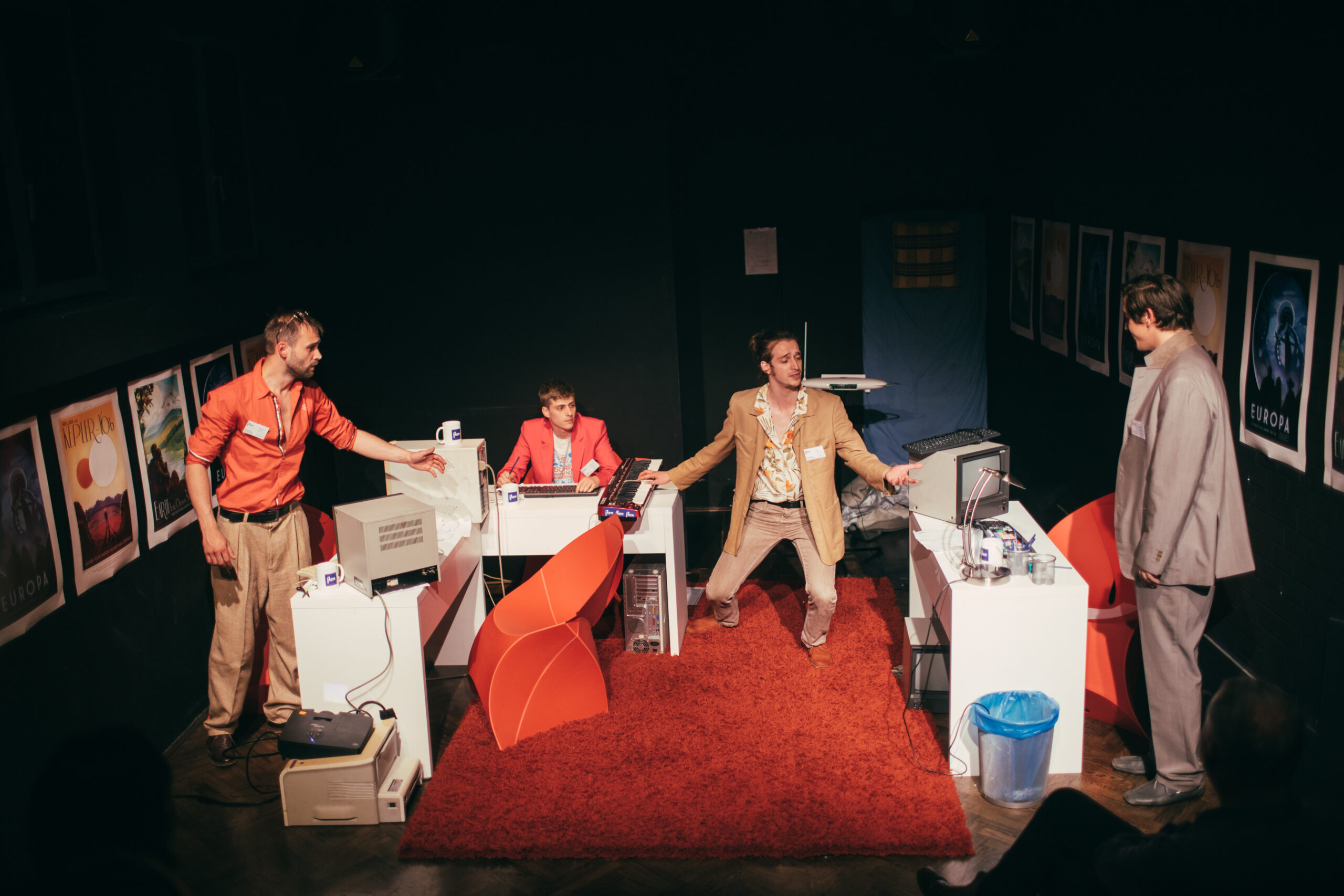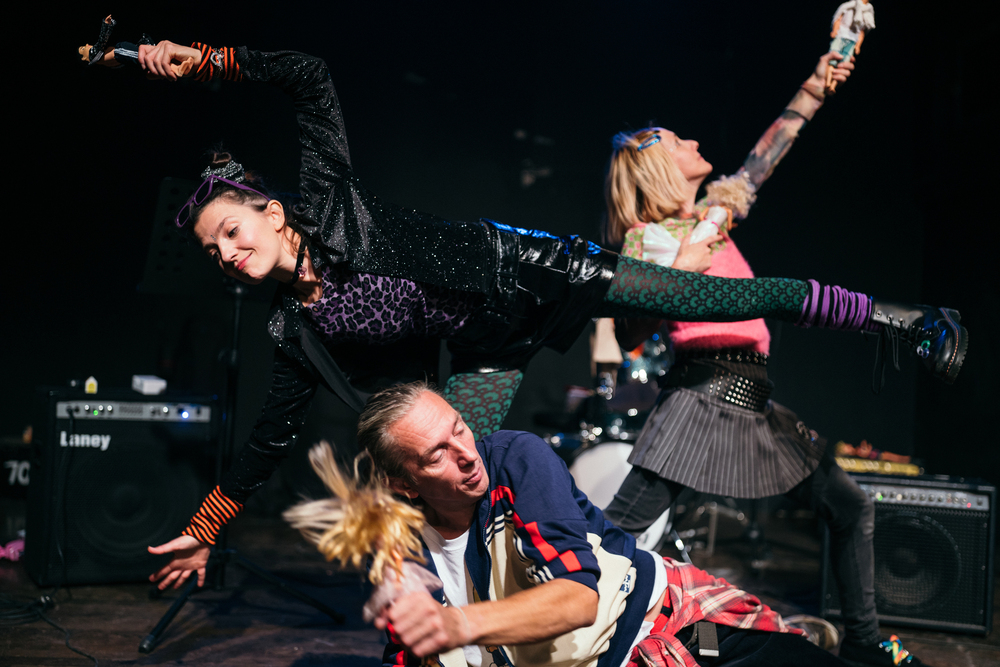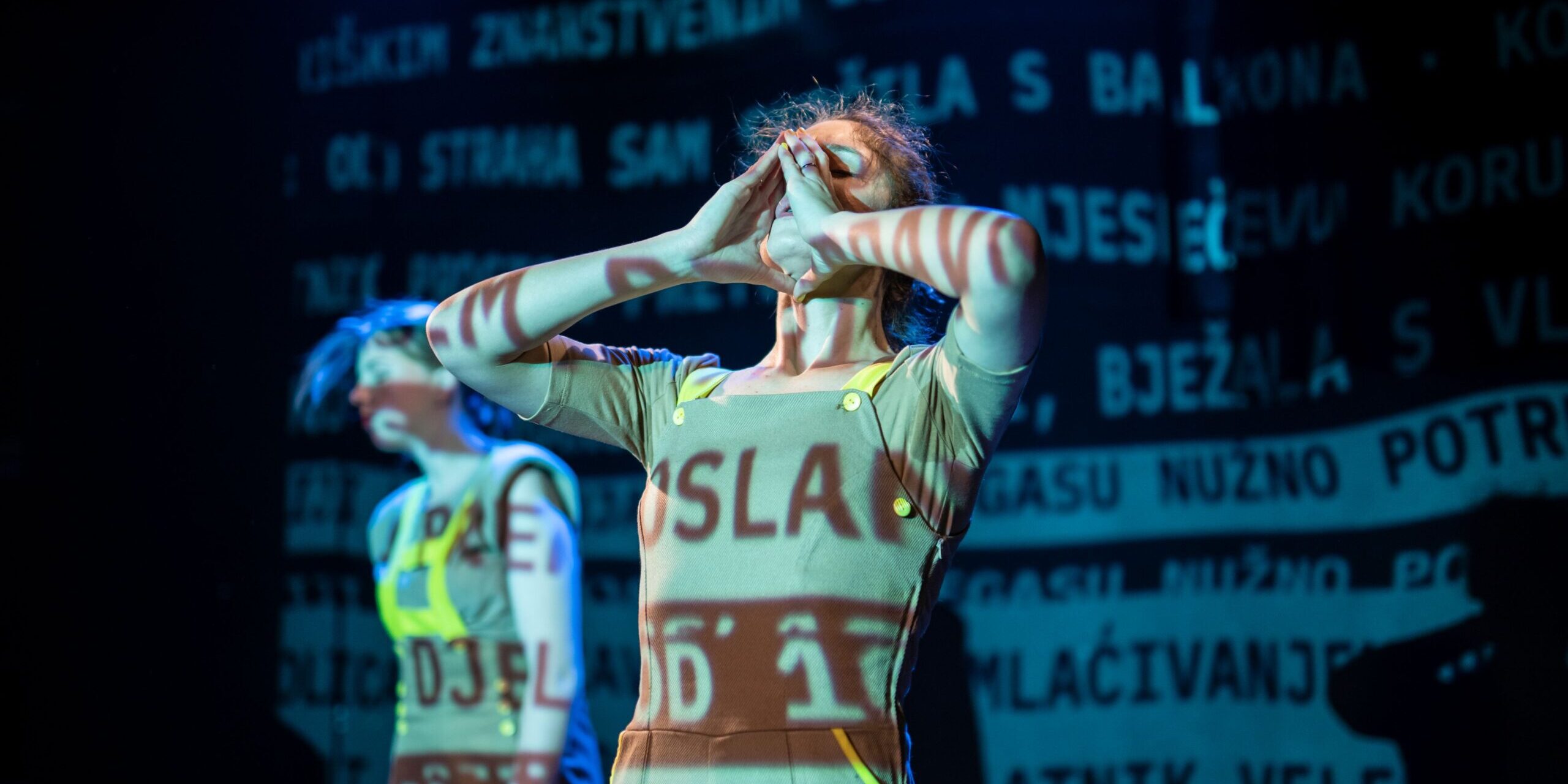Zagreb’s Kunst Teatar is a small privately run and independently spirited theater that supports emerging writers and artists. Lucija Klarik speaks to the co-founders about the challenges and rewards of running their own space.
Zagreb’s independent scene doesn’t suffer from a lack of creative ideas and art organizations. What it lacks is a space for all these artists and concepts to call home. When a small theater, far from the city center where the majority of cultural happenings usually take places, opened in 2018., it felt like a spark of something different, something we might even call hope.
The opening of a theatre might not be a world wonder, but the status quo of Zagreb’s theater scene for a long time meant that the people who work independently (meaning they are not employed in or by an institutional theater) are basically homeless, producing shows which are always haunted by the question: where can we play this? And for how long?
After finishing the Academy of Dramatic Arts in Zagreb, theater producer Romana Brajša, director Ivan Planinić and actor Domagoj Janković were brave enough to go against this trend of always struggling to find a stage, by opening up their own theater, which they called KunstTheater. As Brajša recalls: “We all knew each other since we were students and started already then to discuss the possibility of having our own theater. As it later turned out, Domagoj had this little space on Trešnjevka (a neighbourhood in Zagreb*) which was abandoned. We started off with scarce means which were mostly our private investments and slowly adjusted the space to host theater shows. In 2018. we formed formally an association called KunstTheater under which the theater runs until today. The first year of our work we didn’t have the financial means to support a production but luckily the former coordinators of the association Kufer contacted us, saying they have secured finances, but they don’t have a programme. We, on the contrary had an idea what we wanted to do and this is how the first Kunst production came to be: Good, Bad, Dead which was written by the actor and author Pavle Vrkljan. We knew from the beginning we wanted to work with students and young professionals, so a part of the whole process were also young dramaturgs who participated in the workshops attached to the show’s production and after three months of work, we had our first premiere.”.
Kunst opened its door by the end of 2018. It was capable of hosting an audience between 30 and 50 people in a location which at the time was not well known to theater audiences. Planinić and Janković explained what motivated them to to go into this endeavor. “We were tired of the stuffiness of Croatian theater,” says Janković, which meant as Planinić explains it: “We didn’t want to work on theater that never saw movies, TV, Quentin Tarantino, a football game, a music spot, which insisted on being this theatrical theatre. We wanted to do theater that wasn’t theatrical in this pejorative sense.” Speaking from the point of view of an actor, Janković says: “We didn’t want people to call us out on our ‘theater acting’ which people tend to find artificial and [we] wanted to attract new audiences who don’t usually visit theaters but do consume other types of media like Netflix or YouTube. We wanted to incorporate this moment of pop culture and show that it also has a place in theater as well.”
The key was, as Brajša says, to “try and produce theater shows that we would also like to see.” Getting the theater up and running was very stressful for the Kunst core team but also productive: “That first year we were very enthusiastic and produced a lot of premieres – Flex, Martha and the Seven Fears, there was It Would be a Shame to Let the Plants Die by Ivor Martinić, Tras studio did a show with us and we had another dance piece too, and then we realized that having a space doesn’t necessarily mean that we have extra time in the month when we can play all these shows.”, Brajša recounts.

Flex at KunstTeater
Now, the theater has existed for some time and the production system is more balanced: “We realized the optimum quantity of productions is up to four premieres per season and that we can manage to support those by doing co-productions with the organization I founded – Punctum and Kufer, which we [Romana Brajša and Ivan Penović] took over in 2019., and usually there is one or two other organizations that cooperate with us like D25 run by Ivor Martinić”, continues Brajša
The programme is planned democratically between the Kunst team (Planinić, Janković, Brajša and Penović) and partner organizations. But what goes into the programme of Kunst? “We tend to support the first performances of new texts, debutant authors and directors, or to form combinations in the team that include young and emerging artists and more experienced artists and this is a system that is present also when it comes to choosing the actors and performers, and other associates as well,” Brajša says.
Over a relatively short period of time, it has slowly become obvious to the theater scene in Zagreb that there is a certain profile of shows that are attached to Kunst Theater. “It’s questionable if all of these authors that worked for Kunst – writers, directors, actors – if they can really be put under the same denominator. But what has been proved to by the aesthetic principle is this idea of a “generational theater” that includes theater workers in their 20s up to those in their 50s who somehow belong to the same generation. From those who are still finding their artistic signature to those who are still willing to experiment with it,” says Planinić. “Finally, it’s the age span that the inner circle of Kunst also presupposes and that our audience follows too as a pattern. We could hardly work with theater authors who have infiltrated the theater system and we are also not all that interested in that,” he adds.
To which Janković says: “It’s not that we are not interested but we don’t have the financial means to support that kind of theater because we don’t have the conditions of bigger institutions like Zagreb Youth Theater or the National Theater.”
Running a small, privately-run theater can be challenging. “When you do a production in Kunst, it also means that you might have to turn the heating on yourself, change a lightbulb if it goes off, and if you are still cold after a while, take a blanket and work like that. It’s a bit on working on the barricades”, Planinić describes. Janković adds: “This is partly wonderful because it means we function as a family here, meaning that everyone is responsible for everything but also bit frustrating because there is no other option. If we won’t do it like this, we don’t do it any other way. It would be comforting to have a few employees with a steady pay but that is impossible to secure with the audience capacity we have. Still, we are not complaining, we are successfully surviving.”
Kunst Theater has managed to survive a few seasons already including the COVID-19 period during which they were using the spaces of the Lexigoprahic Institute “Miroslav Krleža” in the city center, wanting to keep if not the place than at least the programme alive. So, what is the key to this persistence? Brajša comments on the question of sustainability as “balancing on the edge of it”: “We are aware we won’t get rich running Kunst but it is still rewarding to do it.” Ivan agrees, adding with a smile that: “Our ex-socialist societies took the worst from capitalism and socialism and we on the contrary took the best from both of the systems – the private initiative which is a capitalistic thing and no profit, which is socialist thing. And when you combine those two, you get the best result, you are just not making money.”
If it may not be able to offer the royal treatment of the grand theaters, but Kunst certainly provides something else to the people coming to work there. Pavle Vrkljan, author of the first Kunst production that has now become a series with Good, Bad, Dead 2 premiering recently, says how Kunst was the place where he felt comfortable to jump from actor to writer: “The freedom is much greater here and the relationships are different. The classic hierarchy – the actor, the text and the author, the director – is much looser in Kunst, the boundaries are much softer than in other theaters.”. Natalija Manojlović who worked closely with Ivana Vuković on two of Kunst’s productions Marta and the Seven Fears and Sloboština Barbie explains the experience of directing for Kunst like this: “What is special about Kunst are the people who make it special, from the core circle to the broader network of associates. The fact that Kunst is a part of the independent scene on which you cannot get rich or famous functions as a sort of a positive filter meaning the people who are approaching this little institution are mostly motivated by their artistic urges. Nowhere have I been given more thrust than in Kunst. When I’m working here on a show, I don’t have to worry about offstage games and problems, I can focus on my art, even though I was never a person who scared away from driving a nail. But I have to say I was never asked to do that in Kunst.”

Sloboština Barbie Photo: Karla Juric
This generational spirit and enthusiasm were already recognized by the scene and the audience equally so. Numerous Kunst’s production gained recognition through awards like Flex being awarded the best show from the Croatian Theater Association or You’re the First Brave (Tomičić/Penović) gaining special recognition on Satire Days “Fadil Hadžić”. Kunst managed to create its own little theater hub in the few years it exists but there is always a question of the future.
What are their future aspirations and wishes? “Our future plans are more of a technical nature. It has been a while, so we need to further invest in our space and equipment. When it comes to the artistic plans, I believe we are in the clear there.”, says Janković. “What would be great in the long term is that more and more theater like Kunst open here, and in the region, or in Europe in general which could then form networks and support each other”, adds Planinić, aware that one Kunst is certainly not enough to compensate all the needs of the independent theater and more so, should not be responsible for it. It seems that only by “setting a new paradigm”, as Janković. puts it, which supports pioneering work and campaigns for the type of theater we want to work on, is it possible to freshen up and propel the theater scene further.
For further information, visit KunstTeatar.hr
Further reading: review of Sloboština Barbie at KunstTeatar
Further reading: Proving Your Worth: Life as an emerging theatre maker in Croatia








